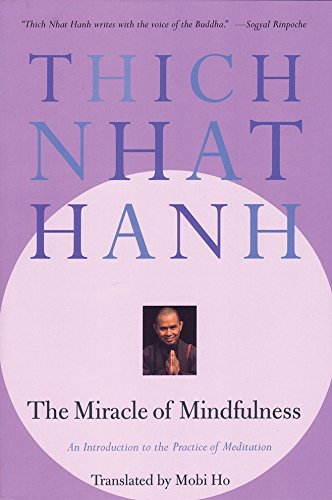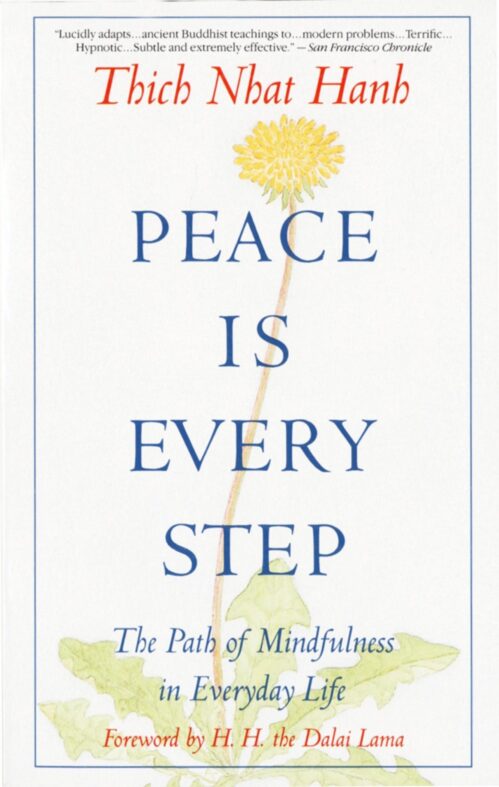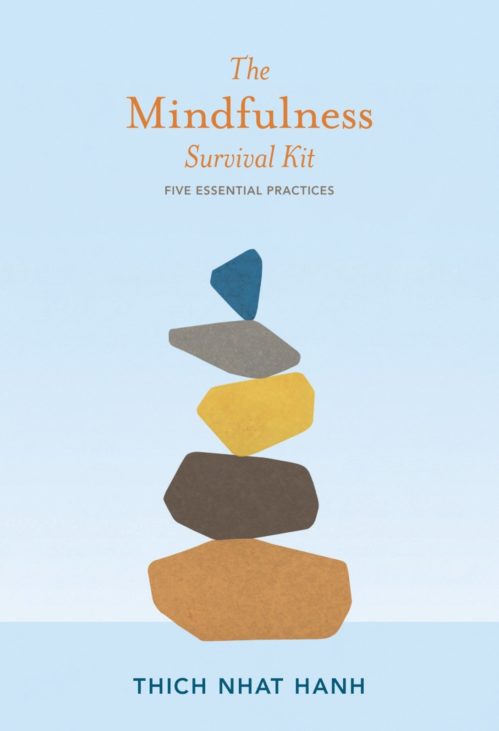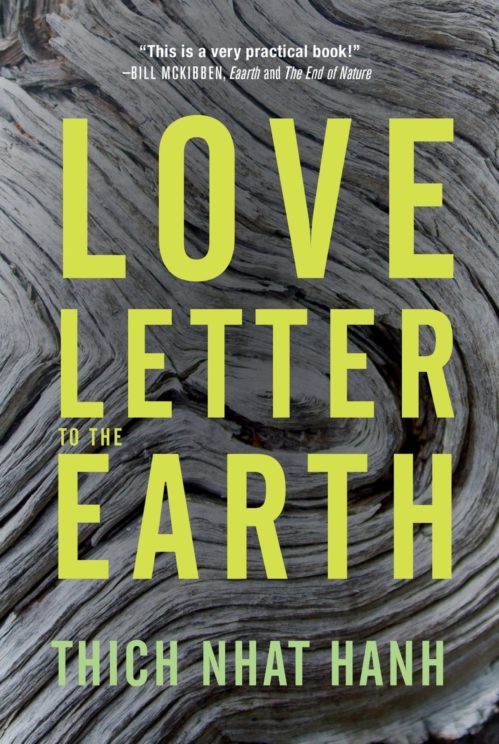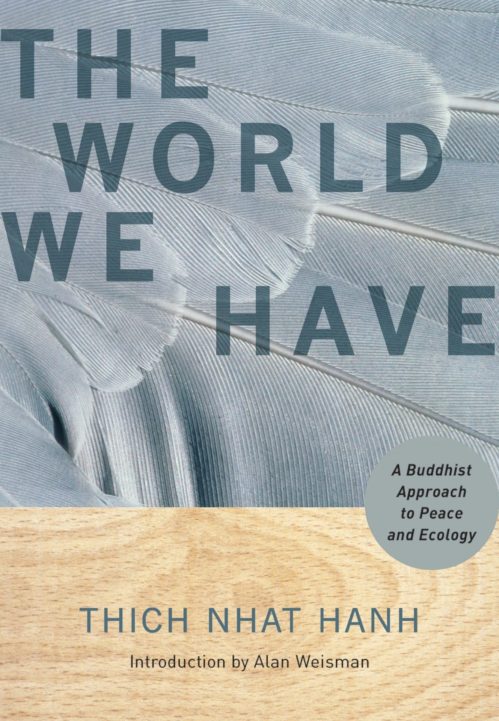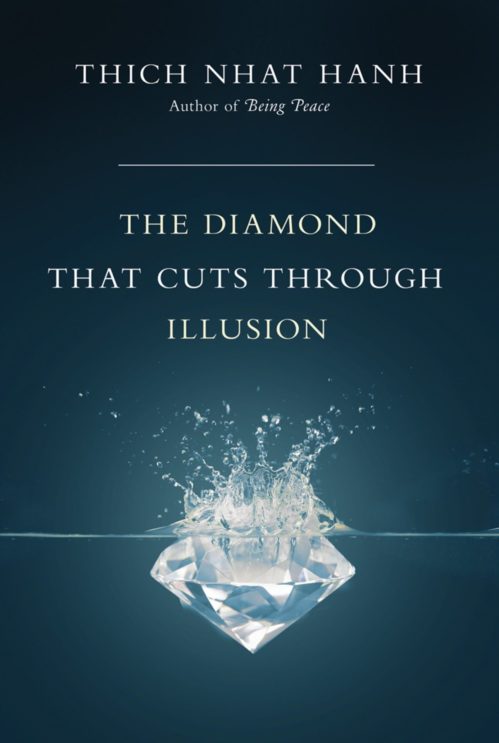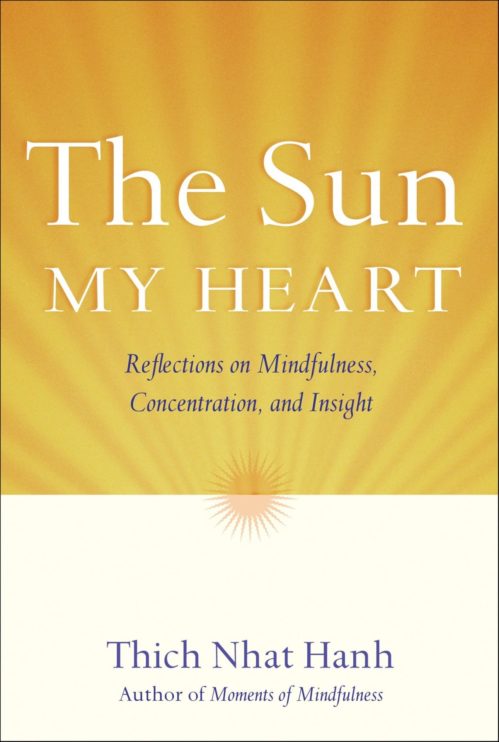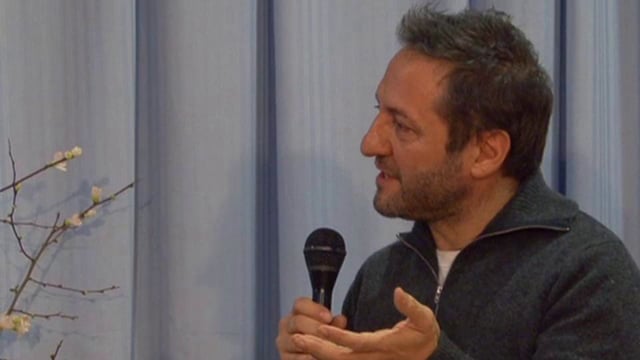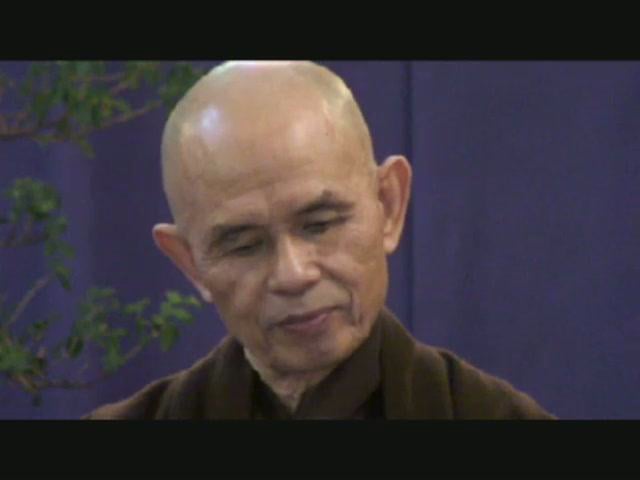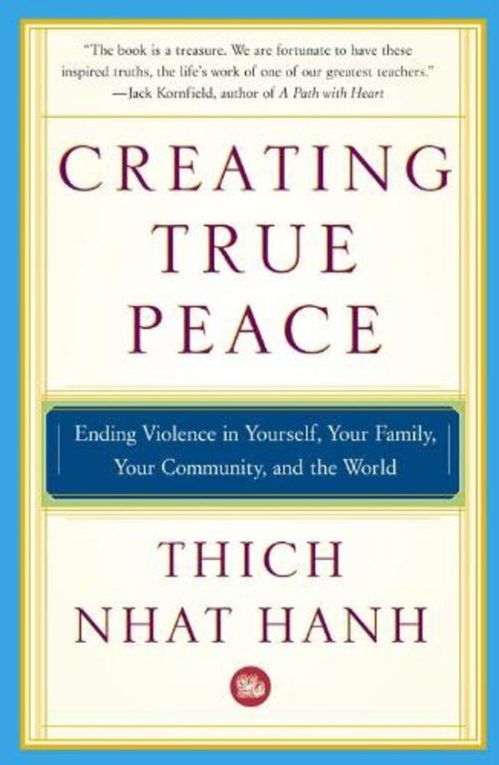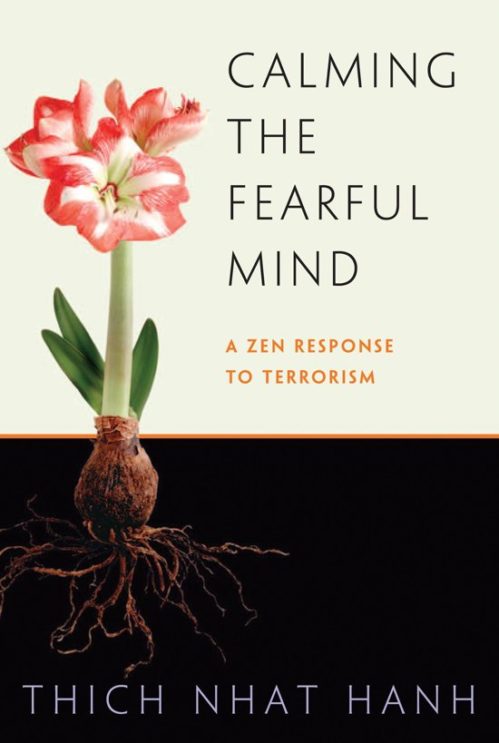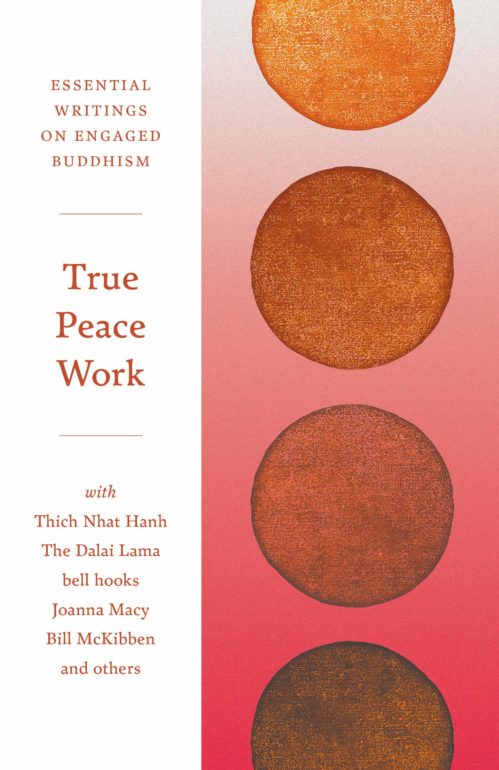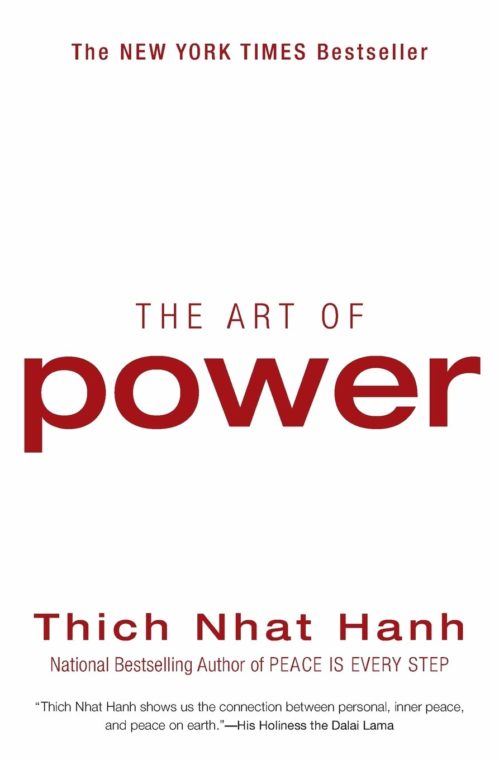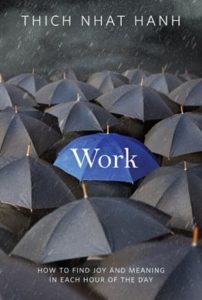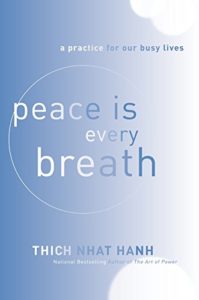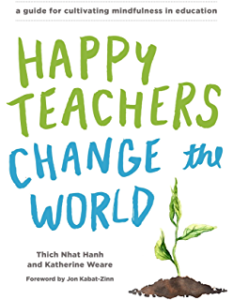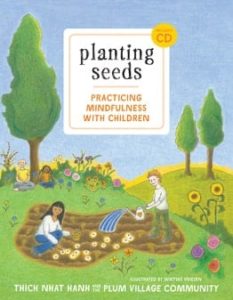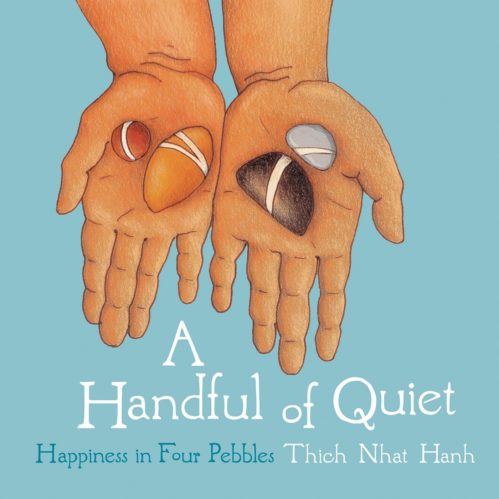Новаторските учения на Тик Нят Хан за осъзнатост, “взаимообусловено съществуване” и ангажирана етика отварят нови пътища за практикуващи, миротворци, активисти, преподаватели, бизнесмени и политици по целия свят.
Прескочи на Mindfulness, Ecology, Peace, Business, Education
Осъзнатост
Тик Нят Хан започва да преподава осъзнатост на Запад в началото на 70-те години на XX век. Неговата книга “Чудото на осъзнатия живот”, написана през 1975г. представя нови, развити от него практики, с които цели да вдъхнови своите ученици и социални работници в родния Виетнам, за да не изгорят те в суматохата и предизвикателствата на войната.
Осъзнатостта ви позволява да изживеете дълбоко всеки момент, който ви е даден да живеете.
Тик Нят Хан
Не мисля, че щях да имам вътрешната издръжливост, дълбочината на оптимизма, дълбочината на ангажираността и на вдъхновението, ако не бях придружавана от ученията на Тик Нят Хан
Кристиана Фигерес, Председател на Парижката конференция за климата
Тик Нят Хан намира нови начини да преподава изкуството на съзнателното дишане и съзнателното ходене като основа на медитацията. Той създава прости практики като осъзнатото миене на зъби, осъзнатото миене на съдове и „медитация на мандарината“. Той разработва нов вид медитация при ходене и начини за съчетаване на дълбокото слушане с осъзнатост и състрадание и за създаване на откритост в общуването. Той поставя началото на деликатен начин за насочване на групи в медитацията, така че дори начинаещите да могат да използват дихателната медитация като средство да виждат в дълбочина, да се изправят пред предизвикателствата и да се излекуват, вместо да бягат от настоящия момент.
Съзнателното дишане ни помага да се справим със силните чувства, като гняв, страх, тревога и отчаяние и ни помага да създадем моменти на щастие в ежедневието. За Тик Нят Хан, осъзнатостта е енергия, която култивираме през целия ден, за да поддържаме състрадателност в действията си и да помогнем за облекчаване на страданието в себе си и в света.
Път, а не средство
Тих Нят Хан винаги преподава осъзнатостта в контекста на етиката. С енергията на осъзнатостта идват съзнателната консумация, съзнателните взаимоотношения и етиката в начина на препитание. Не можете да отделите осъзнатостта от съзнателното говорене, действие, работа и ангажираност в света.
Осъзнатостта не е средство или инструмент да придобиете нещо — независимо дали това нещо е изцеление, успех, богатство или победа. Истинската осъзнатост е път, етичен начин на живот, и всяка стъпка по този път сама по себе си може да донесе щастие, свобода и благополучие на нас и на другите. Щастието и благополучието нямат индивидуален характер. Ние сме взаимосвързани с всички хора и видове.
Essential Reading
Прескочи на Mindfulness, Ecology, Peace, Business, Education
Екология
Учението на Тик Нят Хан за „взаимосъществуването“ (термин, който той въвежда през 80-те години на миналия век) е водещо в будистката дълбока екология. Позовавайки се на древни будистки текстове, като напр. Диамантената сутра, той обяснява будисткото учение за „не-себе-си“ в светлината на екологията: „Не можем да отделим хората от околната среда. Околната среда е в човека и човекът е част от нея… [Дори] разликата между живи и неживи същества изчезва в медитацията“.
Той подкрепя идеята за ролята на човешкия фактор в решението на кризата с климата. „Нуждаем се от нещо повече, не само от нови технологии, за да защитим планетата“ – казва Тик Нят Хан.
„Нуждаем се от истинска общност и сътрудничество. Трябва да възстановим истинското общуване – истинското общение – със себе си, със Земята и един с друг.“ Само когато успеем да се докоснем до истинската любов към Земята, казва той, ще имаме огромната енергия, от която се нуждаем, за да осъществим радикалните промени, необходими за спасяването на нашата цивилизация.
Трябва да се извърши революция и тя започва във всеки от нас. Трябва да се пробудим и да се влюбим в Земята. От това зависи нашето лично и колективно щастие и оцеляване.
Тик Нят Хан
„Този вид просветление е от решаващо значение за колективното пробуждане. В будизма говорим за медитацията като акт на пробуждане, пробуждаме се за факта, че Земята е в опасност, че живите видове са в опасност.“
Колективни действия
През 2007 г. той повежда десетки хиляди свои последователи в преминаването към веганска диета.“В миналото будистите са били вегетарианци с цел да подхранват състраданието си към животните. Сега знаем, че трябва да бъдем вегани, за да защитим Земята.”
Taking Refuge in Mother Earth 18:22
Allow yourself to be embraced by the Earth in this deep teaching from Thich Nhat Hanh.
Science, Mother Earth and Einstein’s Cosmic Religion 26:40
Thich Nhat Hanh’s vision for a science-inspired cosmic religion.
„Понякога в света се случва нещо нередно и ние си мислим, че то е дело само на другите хора, ние не го правим. Но вие сте част от неблаготворните действия чрез начина, по който живеете живота си.“
„Ето защо е много важно да се научим да променяме начина си на живот, така че да има повече съзнателност, мир и любов. Можем да го направим още сега, днес.“
„Активистите трябва да имат духовна практика, която да им помогне да страдат по-малко, да подхранват щастието и да се справят със страданието, за да могат да помагат ефективно на света. С гняв и неудовлетвореност не може да се направи много.“
Essential Reading
Watch Thich Nhat Hanh’s Ecology Teachings
Related News Coverage
- „Only Love Can Save Us from Climate Change“
- A Sense of Sacred Can Help Sustainable Business
- Why we Need Mindfulness and a Spiritual Revolution to Protect the Earth
- What We Can Learn From Buddhist Insights for the Climate Crisis
- This Buddhist Monk Is An Unsung Hero In The World’s Climate Fight
- Thich Nhat Hanh on Facing Despair and Ecological Collapse
Прескочи на Mindfulness, Ecology, Peace, Business, Education
Мир
Основното послание на Тик Нят Хан е, че за да постигнем мир в света, трябва да имаме мир в себе си. През десетилетията на миротворна дейност той осъзнава, че корените на войната не се крият в оръжията, а в нашите сърца и умове – в енергията на страха, насилието и дискриминацията, предизвикани от това, което гледаме, четем, чуваме и казваме.
С начина, по който живеем в ежедневието си, допринасяме за мира или за войната. Осъзнатостта е тази, която може да ми каже, че вървя по посока на войната, а енергията на осъзнатостта е това, което може да ми помогне да направя завой и да тръгна по посока на мира.
Тик Нят Хан
Тик Нят Хан учи, че само като култивираме мир в нашeтo собствено тяло и съзнание, като освобождаваме напрежението, успокояваме силните емоции, преоценяваме възприятията си и постигаме мир с членовете на семейството и колегите си, ние ще бъдем в състояние да създадем мир в нашето общество, в нашата нация и в света.
Лотос в море от огън
От времето, когато е водеща фигура в будисткото движение за мир във Виетнам през 60-те години на миналия век, Тик Нят Хан защитава идеята, че няма такова нещо като „война за мир“: мирът започва със спиране на бомбардировките. Той подчертава значението на това да не се взема страна в конликта. Той учи, че “истинският враг на човека не е човекът. Истинският враг е нашето невежество, дискриминация, страх, страст и насилие.”
Мирът не е просто отсъствие на насилие; той е култивиране на разбиране, прозрение и състрадание, съчетани с действие.
Тик Нят Хан
През 1966 г. Тик Нят Хан напуска Виетнам и заминава за САЩ, за да призове за мир и плаща цената на изгнанието. Той успява да убеди д-р Мартин Лутър Кинг-младши да се обяви срещу войната, което променя общественото мнение. През януари 1967 г. д-р Кинг публично го номинира за Нобеловата награда за мир, наричайки го „апостол на мира и ненасилието“, чиито „идеи за мир, ако се приложат, биха изградили паметник на икуменизма, на световното братство, на човеколюбието“. След като е изгонен от родината си, Тик Нят Хан продължава да ръководи виетнамската будистка делегация за мир на мирните преговори в Париж.
Тик Нят Хан ни показва връзката между личния, вътрешен мир и световния мир
Негово Светейшество Далай Лама
Ако искаш мир, трябва да бъдеш мир
През 80-те години на миналия век Тик Нят Хан вижда, че в движението за мир има „много гняв“. Той казва: „Можете да преместите всички бомби на Луната, но ако не изкорените бомбите в сърцата на хората, войната ще продължи“. В Плъм Вилидж, Франция, той започва да разработва конкретни практики за осъзнатост, за култивиране на мир, състрадание, дълбоко слушане и любяща реч; както и за разрешаване на конфликти и трансформиране на страха, тревогата и погрешните възприятия.
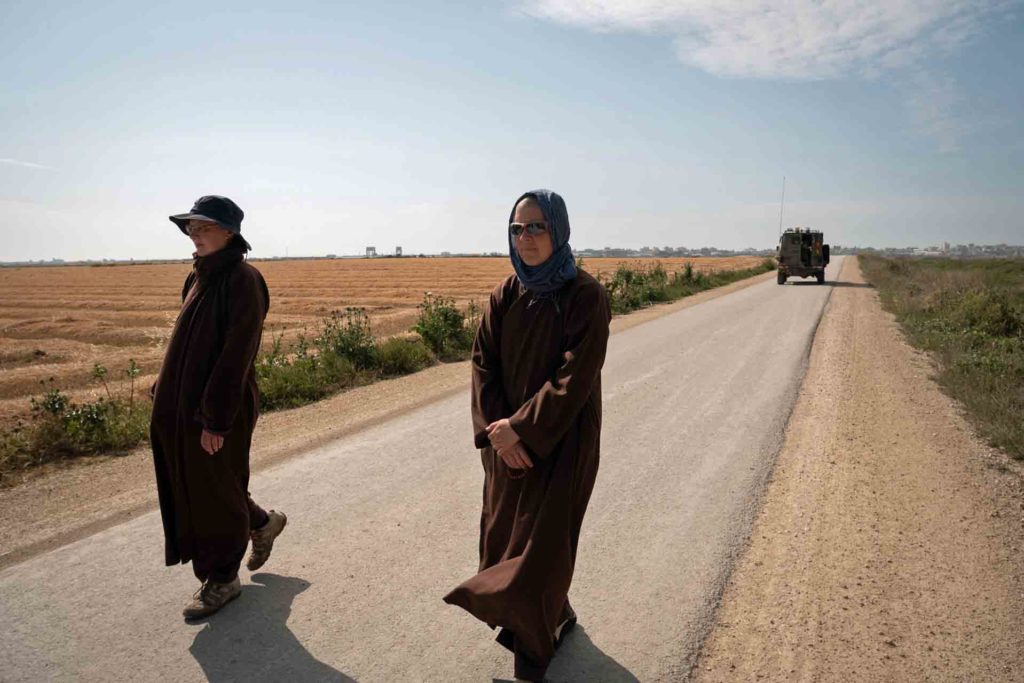
Мирът е възможен
Тик Нят Хан учи, че състраданието е най-добрият начин да се гарантира истинска сигурност. Той организира ритрийти за ветерани от войната, израелци, палестинци и полицейски служители, където говори за корените на страха, тероризма и военно-промишления комплекс. По време на бомбардировките на Ирак той представя своето послание за мир пред Конгреса на САЩ, както и пред парламентите на Индия, Обединеното кралство и Северна Ирландия. Ръководи ходещи медитации за мир с участието на хиляди в Париж, Лос Анджелис, Рим, Ханой, Макао и Ню Делхи. По време на тези събития той заявява: „Всяка стъпка е проява на мир. Всяка стъпка е молитва за мир.“
На въпроса как можем да постигнем мир в условията на климатична криза и срив на цивилизацията, той отговоря: „Възможно е да направим нещо сега. Не се отчайвайте. Има нещо, което всички ние можем да направим. Все още има шанс. Осъзнайте това и го направете, и така ще постигнете мир.“
Recommended Books on Peace and Non-Violence
Watch Thich Nhat Hanh’s talks and teachings on Peace
Прескочи на Mindfulness, Ecology, Peace, Business, Education
Бизнес
Времето не е пари. Времето е живот. Времето е любов.
Тик Нят Хан
По време на ритрийти за бизнесмени и на семинари в централите на големи компании Тик Нят Хан подчертава необходимостта да се научим на умението да живеем щастливо в настоящия момент и да не жертваме това, което имаме сега за постигане на нещо друго в бъдеще. „Можете да бъдете жертва на успеха си – казва той, – но никога не можете да бъдете жертва на щастието си.“
Може да си мислим, че сме незаменими, казва той, и да пожертваме всичко, за да инвестираме в кариерата и компанията си, включително времето с близките хора, времето за почивка сред природата и времето, в което правим това, което ни храни духовно. Но ако утре загинем при инцидент, има вероятност компанията ни да ни замени в рамките на 3 дни.
Трябва да изберете. Искате ли да сте първи? Или искате да сте щастливи?
Тик Нят Хан
Тик Нят Хан учи, че трябва да променим представите си за това какво е „истинско“ щастие. Има много хора, които прекарват живота си в преследване на слава, власт, богатство и чувствени удоволствия, като смятат, че могат да бъдат щастливи само когато получат тези неща. Но когато ги получат, откриват, че все още не са щастливи. Щастието може да бъде открито само в настоящия момент, когато можем да изживеем настоящия момент дълбоко, в контакт със себе си, с близките си и със Земята.
Щом успеем да се докоснем до истинското щастие, ще имаме прозрението, времето и енергията, от които се нуждаем, за да предприемем действия за облекчаване на страданието, неравенството и несправедливостта.
What do you really want to do with your life? 5:19
How corporate leaders can cultivate powerful intention and motivation.
Тик Нят Хан насърчава бизнес лидерите да развиват качества като яснота, състрадание и смелост в своето управление и да превръщат компаниите си в истински общности. Той приканва управляващите да създават възможности за дълбоко вслушване в служителите си, да чуват както техните страдания, така и стремежите им – много конкретен начин за прилагане на етика в бизнеса и създаване на енергията, необходима за трансформация на работното място. Според него е възможно фирмите да бъдат превърнати в организации, които повишават благосъстоянието и намаляват страданието на служителите, техните семейства, обществото и Земята.
Related News Coverage
- Thich Nhat Hanh: is mindfulness being corrupted by business and finance?
- A Buddhist monk at Salesforce’s tech conference showed me a great way to reduce stress
- How Monks Convinced Marc Benioff To Install ‘Mindfulness Zones’ Throughout Salesforce’s New Offices
- A Zen master explains how the west is getting mindfulness all wrong
Прескочи на Mindfulness, Ecology, Peace, Business, Education
Осъзнатост в образованието
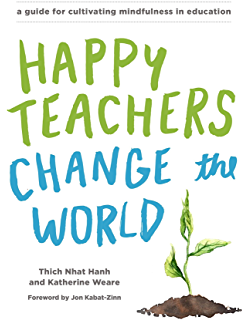
От много години децата и семействата са добре дошли на ежегодния летен ритрийт в Плъм Вилидж (Summer Opening, Plum Village) във Франция и на други ритрийти по света, а от 2008 г. Тик Нят Хан подчертава необходимостта от подкрепа на преподавателите чрез споделяне с тях на практиката на осъзнатост.
Училищата могат да преподават много повече от четене, писане, математика и природни науки. Училищните програми могат също така да научат младите хора как да се справят с гнева, как да разрешават конфликти, как да дишат, да се усмихват и да изграждат характера си. Революцията в образованието е възможна.
Тик Нят Хан
Всичко започва от учителя
Тик Нят Хан подчертава, че осъзнатостта в образованието трябва да започне от учителите. Ако един учител практикува осъзнатост и я прилага в класната стая, той ще предаде осъзнатостта на своите ученици, въпреки, че не я преподава формално като предмет. С тази цел монасите и монахините от манастирите на Плъм Вилидж провеждат ритрийти за учители по целия свят и създават движението „Wake Up Schools“.
Първото нещо, което трябва да направи един учител е да се върне у дома към себе си. Изходът е навътре. Върнете се към себе си и се погрижете за себе си. Научавате се как да създавате чувство на радост, научавате как да създавате чувство на щастие, научавате се как да се справяте с болезненото чувство, с болезнената емоция.
Тик Нят Хан
Класът като второ семейство
Тъжен е фактът, че семействата на много деца не успяват да осигурят щастлива и емоционално здравословна среда. Тик Нят Хан учи, че за тези деца класната стая предлага втори шанс като подкрепящо семейство. Ако училищата и учителите са в състояние да осигурят достатъчно време за съпричастно общуване в класната стая, те могат да създадат безопасна и благотворна среда за младите хора.
В една нова образователна система би трябвало да се осигури време на учителите да седят с учениците си и да се изслушват взаимно. Защото и учениците, и учителите носят страдание в себе си. И ако учителите и учениците разберат страданието на другия, те ще престанат да си причиняват повече страдания. Ще има добра комуникация и работата около преподаването и ученето ще стане много по-лека.
Тик Нят Хан


